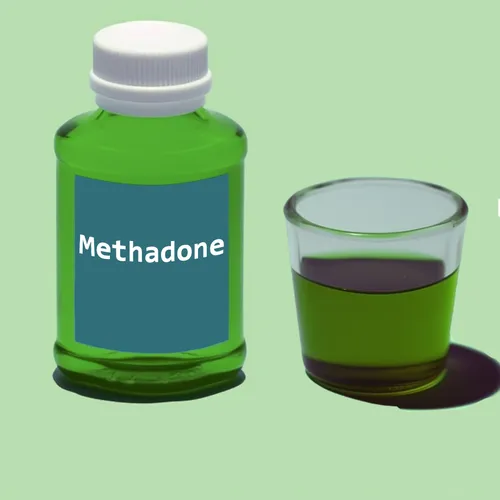What is Methadone?
Methadone is an oral substitute for heroin and other morphine-like drugs. It is a synthetic opiate that is commonly administered in detoxification programmes to suppress withdrawal symptoms and/or to maintain drug takers who are chronically addicted to heroin.
What is EDDP?
EDDP is the molecule obtained after the human body has modified the basic molecule of Methadone in order to eliminate it. It is this metabolite that can be found in urine.
The advantage of testing for EDDP instead of methadone (MTD) is that individuals in methadone programmes may pass off their methadone into the illegal drug market and then try and hide this activity by putting a few drops of methadone into their urine sample. This type of activity is known as “spiking.” In these situations the urine sample will contain large amounts of methadone and no or insignificant amounts of EDDP. This is because the drug was not ingested and therefore not metabolised. Testing for EDDP will help identify any attempts to cheat the test.
What is the cut-off for an EDDP drug test?
The cut-off for this EDDP test is 100 ng/ml. A positive test result will be given if the urine sample contains at least 100 nanograms of EDDP per millilitre of urine. A negative reading will be the result if the sample contains less than that.
For how long can EDDP be detected in urine?
Detection time of EDDP in urine is normally 3 to 4 days after consumption.
EDDP Urine Drug Test
The Zoom Testing EDDP urine drug test is supplied for healthcare professional use and provides preliminary screening results. Zoom Testing recommends that a more specific chemical method (i.e. GC/MS) be used in order to obtain a confirmed analytical result.
Interpreting EDDP Test Results
When interpreting EDDP drug test results, it is important to consider the full clinical context. A positive EDDP test indicates recent methadone use, but does not provide information about appropriate vs inappropriate use. A negative EDDP combined with positive methadone may indicate attempts to subvert the test. However, this could also reflect normal variations in metabolism. Definitive conclusions require confirmatory testing methods. Healthcare providers should have a respectful, non-judgemental conversation with patients about any concerning test results. The goal is to provide appropriate care, not to punish people struggling with addiction.
EDDP Testing Limitations
While EDDP testing has advantages, it also has limitations. EDDP levels can vary significantly between individuals based on factors like genetics, liver function, other medications, etc. It has a relatively short detection window of approximately 3-4 days. EDDP is not a metabolite of other common opioids like morphine, hydrocodone, or oxycodone. So it cannot identify use of those substances. Clinicians should choose testing methods carefully based on the clinical scenario and incorporate other forms of assessment as well.
Future Directions
In the future, improving technology and decreasing costs may enable more advanced forms of substance monitoring. Wearable biosensors, for example, could provide continuous measurements of multiple drug metabolites. Combined with machine learning algorithms, this could allow personalized feedback on substance use trends. Such technologies raise ethical considerations but may ultimately provide new tools to aid people struggling with addiction. However, clinical judgement and compassion must remain central to guiding care.
Conclusion
EDDP testing can be a useful tool to monitor methadone treatment programmes. However, results require careful interpretation considering the full clinical context. Testing has inherent limitations and is only one part of appropriate substance use assessment. A respectful, non-judgemental approach creates the best environment for people to be open about their struggles with addiction so that optimal care can be provided. As technology continues to advance, it may enable more personalized feedback and care. But the therapeutic relationship will remain integral to promoting recovery.
Photo by Anthony Cunningham for Zoom Testing
Zoom Testing is a leading UK drug testing company and a supplier of Drug Test Kits.





